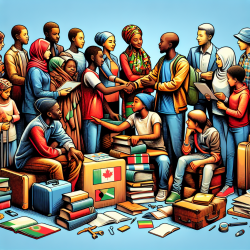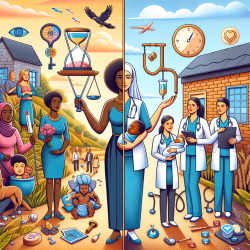The journey of African refugee youth adapting to life in Canada is a complex tapestry of challenges and opportunities. The research article "African Refugee Youth’s Experiences of Navigating Different Cultures in Canada: A 'Push and Pull' Experience" provides profound insights into these experiences, highlighting key themes that practitioners can use to improve their skills and support these youth more effectively.
Understanding the Challenges
African refugee youth face significant hurdles as they adapt to Canadian culture. The study identifies four main themes that encapsulate their experiences:
- Disruption in the Family: Many youths experience separation from parents due to migration or conflict, affecting their adaptation and emotional well-being.
- Our Cultures Are Different: Youths encounter a cultural shock as they navigate differences between African and Canadian cultures, particularly in family dynamics and social norms.
- Searching for Identity: A Cultural Struggle: Balancing between heritage and Canadian culture presents a "push and pull" struggle for identity among these youths.
- Learning the New Culture: Despite challenges, youths find ways to adapt by observing and learning from their surroundings.
Practical Implications for Practitioners
The findings from this research offer valuable insights for practitioners working with refugee youth. Here are some actionable steps to consider:
- Cultural Sensitivity Training: Engage in training that focuses on understanding the cultural backgrounds of African refugee youth. This knowledge can help tailor support services that respect and incorporate their heritage.
- Create Supportive Environments: Foster environments where youth feel safe to express their cultural identities. Encourage activities that promote cultural exchange and understanding among diverse student groups.
- Mental Health Support: Recognize the emotional toll of family disruptions and identity struggles. Provide access to mental health resources that are culturally sensitive and accessible.
- Cultural Awareness Programs: Implement programs that educate both newcomers and local students about each other's cultures. This can reduce cultural misunderstandings and promote inclusivity.
The Importance of Further Research
This study underscores the need for ongoing research into the adaptation experiences of African refugee youth. Practitioners are encouraged to delve deeper into understanding how different cultural dynamics affect integration outcomes. Such research can inform policies and practices that better support these youths' settlement processes.










